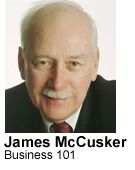 |
Published December 2004
Make
most out of ‘face time’
with applicants
 “Face
time” is one of those common expressions with a deeper meaning. It began
as a sales and marketing term to describe and account for the travel and
meeting time necessary to close a deal. Later picked up by management
in general, it described much the same phenomenon: face-to-face meetings
with individuals and groups to facilitate understanding and communications.
“Face
time” is one of those common expressions with a deeper meaning. It began
as a sales and marketing term to describe and account for the travel and
meeting time necessary to close a deal. Later picked up by management
in general, it described much the same phenomenon: face-to-face meetings
with individuals and groups to facilitate understanding and communications.
In the recruiting process, there is no substitute for “face time.” No matter how well we scan resumes and screen applications, we still need a face-to-face interview to determine who is most likely to contribute the most, and succeed, in our organization. St. Jerome got it right 16 centuries ago when he wrote, “The face is the mirror of the mind.” Our judgments about people simply are not fully formed unless we have talked with them face to face.
Before the actual face time, though, there is one more step. Once you have sorted through the resumes to find the candidates who appear to have the most potential to fill the position, it is time to conduct one last test — the telephone screening. How extensive this is varies widely from employer to employer, but, at a minimum, you should speak on the telephone with each candidate you consider worth an interview. Telephone conversations reveal things about a candidate that letters, faxes and e-mails do not.
You can tell a lot about a person’s attitude, for example, simply by the way he or she answers the phone. And, additionally, if they pick up the phone and say, “Yeah” (which you can hardly hear because of the head-banger music in the background), don’t forget that they will answer the phone on the job the same way, and that will communicate something about your team and your company. Whatever communications style you are looking for, don’t expect people to abandon their long-standing habits just because they accepted your job offer.
After you have used the telephone screening process to further narrow down the list of candidates, it is time to invite them in for an interview.
Interviewing candidates is an expensive and time-consuming process, so it is important to get it right. Leslie Bratrud, manager of the Seattle branch of Robert Half International Inc., says, “To get the most out of an interview, you should prepare ahead of time by deciding how you are going to conduct the interview to get the information you need to make a judgment about the candidate.”
(It is not at all unusual for Robert Half, which makes its living by selecting candidates, to have a staff team spend as much time preparing for an interview as in the interview itself. Not all employers feel that they can afford that much time, but from my own experience, I can say that every minute of preparation time pays off in the results.)
Certainly, we should use the interview to assess the skills of the candidate. And, Bratrud adds, “Job titles on the employment history tell us a lot, but it is important to ask the candidate what they did in those jobs. We can get a better picture, then, not just about their actual tasks but about their ability to communicate their knowledge of the skills they acquired and applied.”
Along with a skills assessment, though, it is equally important to get an idea of how well a person is going to fit into your work environment. And while this can vary a lot from workplace to workplace, there is certainly one constant: listening. It is as important to the entry-level worker as it is to the CEO.
Bratrud says that while people are generally on their best behavior during an interview, “you can tell whether or not they are listening by how they respond to your questions. Do they answer the question? Or do they just make statements about themselves?”
An interview tells a lot about a candidate’s communications skills, self-confidence and, most importantly, attitude. The communications skills that are needed can vary widely, of course, and there are people whose technical or analytical skills simply outweigh their communications shortcomings — if you place them in the right job.
If you have an opening for a principal computer systems support person (still known as an “alpha geek” in many workplaces), his or her letter writing or public speaking skills are probably not an important factor in the selection process. If you are looking for a marketing director, however, these communications skills are crucial.
But while skill levels can vary with the job, and some qualities can be acquired on the job, there are two things the candidate must bring to the interview that are necessary to success in any position: honesty and a good attitude. Accept no substitutes.
James McCusker, a Bothell economist, educator and small-business consultant, writes “Your Business” in The Herald each Sunday. He can be reached by sending e-mail to otisrep@aol.com.
The
Marketplace
Heraldnet
The
Enterprise
Traffic
Update
Government/Biz Groups
© 2004 The Daily Herald Co., Everett, WA
